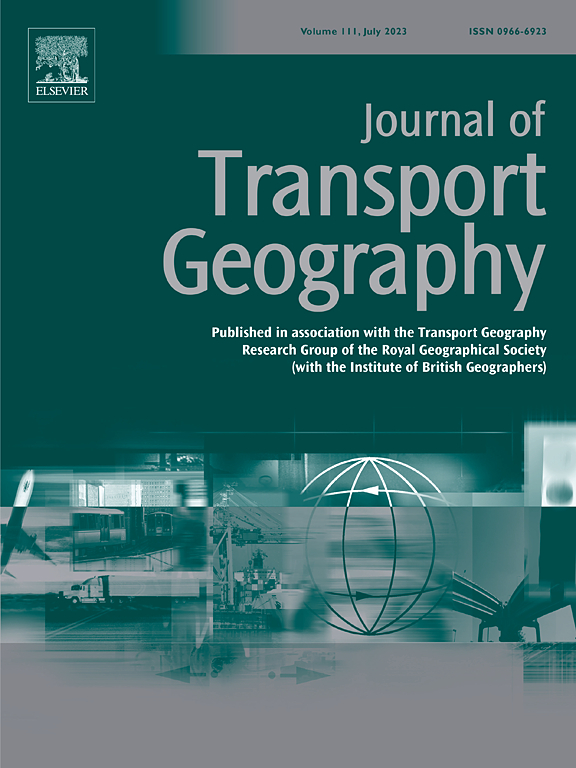MaaS包偏好的代际差异
IF 5.7
2区 工程技术
Q1 ECONOMICS
引用次数: 0
摘要
移动即服务(MaaS)通过将不同的模式集成到一种服务中,有助于促进向可持续旅行行为的转变。目前的研究揭示了MaaS包的采用和包中首选服务的代际差异。在选择模型中引入了与多式联运和亲环境行为相关的潜在变量。进行了陈述选择实验,并采用综合选择和潜变量的混合logit模型对数据进行了分析。各代人对多式联运有着相似的态度,但他们对环境问题的看法存在更明显的差异,婴儿潮一代倾向于更关注环境影响。代际之间存在差异,例如Z世代对MaaS捆绑包的态度比其他年龄段更积极。此外,老一辈人对包含共享移动服务的捆绑包不感兴趣。表现出高度环保意识和积极多式联运行为的旅行者更有可能购买MaaS套餐。这项研究强调了设计MaaS套餐的重要性,该套餐考虑了旅行者的代际异质性,从而支持在群体层面上更广泛的吸收。本文章由计算机程序翻译,如有差异,请以英文原文为准。
Generational differences in the preferences for MaaS bundles
Mobility as a Service (MaaS) helps facilitate the shift toward sustainable travel behavior by integrating different modes into one service. Current study reveals the disparities in the adoption of MaaS bundles and the preferred services in the bundles across generations. Latent variables related to intermodality and pro-environmental behavior are introduced to the choice modeling. A stated choice experiment is conducted, and the data are analyzed by using the mixed logit model with integrated choice and latent variables. All generations share similar attitudes toward intermodality, but more noticeable differences in their views on environmental concerns, with Baby boomers tending to be more concerned about environmental impacts. Differences are found among generations, such as Gen Z shows more positive attitudes toward MaaS bundles than other age groups. Furthermore, older generations are not interested in bundles containing shared mobility services. Travelers who indicate high environmental awareness and positive intermodal behavior are more likely to purchase MaaS bundles. This study highlights the importance of designing MaaS bundles that consider travelers' heterogeneity based on generations thus supporting a wider uptake at group level.
求助全文
通过发布文献求助,成功后即可免费获取论文全文。
去求助
来源期刊

Journal of Transport Geography
Multiple-
CiteScore
11.50
自引率
11.50%
发文量
197
期刊介绍:
A major resurgence has occurred in transport geography in the wake of political and policy changes, huge transport infrastructure projects and responses to urban traffic congestion. The Journal of Transport Geography provides a central focus for developments in this rapidly expanding sub-discipline.
 求助内容:
求助内容: 应助结果提醒方式:
应助结果提醒方式:


